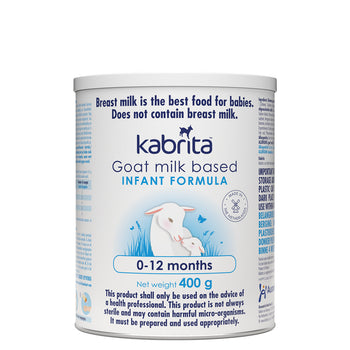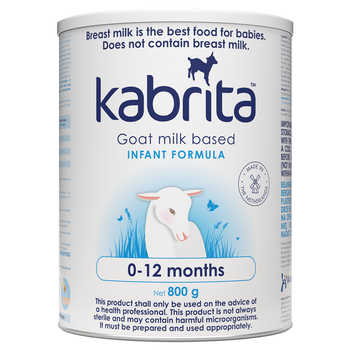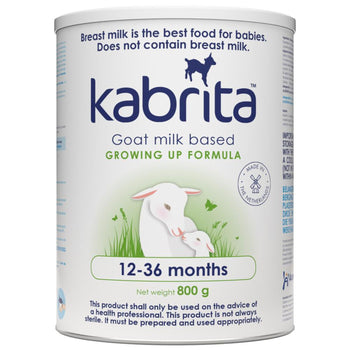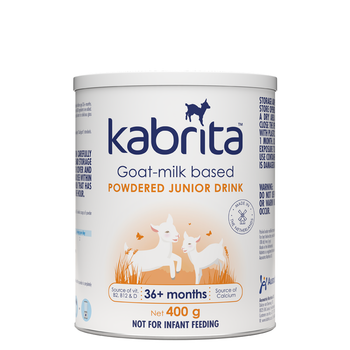Building Blocks of Gut Health

Setting out to support your family’s health through maintaining the health of their microbiome is a really achievable goal.
What is our microbiome?Picture a bustling city on a weekday morning, the sidewalks flooded with people rushing to get to work or to appointments. Now imagine this at a microscopic level and you have an idea of what the microbiome looks like inside our bodies, consisting of trillions of microorganisms (also called microbiota or microbes) of thousands of different species[ii].
Each person has an entirely unique network of microbiota that is originally determined by one’s DNA. A person is first exposed to microorganisms as a baby, during delivery in the birth canal and through breast milk[iii]
In a healthy person, the many good and few bad “bugs” coexist peacefully, with the largest numbers found in the small and large intestines but also throughout the body[iv]
Can diet affect your Baby’s microbiota?
We do know is that the composition of microbes in our gut influences way more than just our digestion. Diet is considered as one of the main drivers in shaping the gut microbiota across our life-time. Intestinal bacteria play a crucial role in maintaining our immune systems. Gut bacteria that is changed has been associated with infections and disease[v].
Boosting your Baby’s Microbiota
Prebiotics can be seen as the food that helps to stimulate, grow and maintain our beneficial gut bacteria in your baby’s gut[vi]. These oligosaccharides act as prebiotics in the gut and help to maintain the health of the digestive tract of your baby by encouraging the growth of the good gut bacteria and preventing the growth of harmful bacteria[vii].
Human milk contains an abundant supply and diverse array of oligosaccharides, which possess these ‘prebiotic’ properties that are known to offer significant health benefits to the breastfed infant[viii].
However, when a mother’s milk is not available, infant milk formula is considered as an effective alternative[ix]. Goats’ milk is considered to be more similar to human milk. Why you may ask? Because goats’ milk naturally contains higher levels of the beneficial oligosaccharides relative to milk from other mammalian species[x]. These oligosaccharides help to establish and maintain a healthy gut, boosts your baby’s immune system and protects against gastrointestinal infections[xi].
[1] https://www.foodmag.com.au/research-claims-goats-milk-formula-promotes-better-gut-health/
[1] Ursell, L.K., et al. Defining the Human Microbiome. Nutr Rev. 2012 Aug; 70(Suppl 1): S38–S44.
[1] Ursell, L.K., et al. Defining the Human Microbiome. Nutr Rev. 2012 Aug; 70(Suppl 1): S38–S44.
[1] https://www.hsph.harvard.edu/nutritionsource/microbiome/
[1]Thursby E and Juge N. Introduction to the human gut microbiota. Biochem J. 2017 Jun 1; 474(11): 1823–1836.
[1] https://www.foodmag.com.au/research-claims-goats-milk-formula-promotes-better-gut-health/
[1] Lara-Villoslada F, Debras E, Nieto N, Concha A, Galvez J, Lopex-Huertas E, Boza J, Obled C, Xaus J. Oligosaccharides isolated from goats’ milk reduced intestinal inflammation in a rat model of dextran sodium sulphate-induced colitis. Clin Nutr 2006; 25:477-488.
[1] Leong A, Liu Z, Almshawit H, Zisu B1, Pillidge C, Rochfort S and Gill H. Oligosaccharides in goats’ milk-based infant formula and their prebiotic and anti-infection properties. British Journal of Nutrition (2019), 122, 441–449.
[1] Leong A, Liu Z, Almshawit H, Zisu B1, Pillidge C, Rochfort S and Gill H. Oligosaccharides in goats’ milk-based infant formula and their prebiotic and anti-infection properties. British Journal of Nutrition (2019), 122, 441–449.
[1] Leong A, Liu Z, Almshawit H, Zisu B1, Pillidge C, Rochfort S and Gill H. Oligosaccharides in goats’ milk-based infant formula and their prebiotic and anti-infection properties. British Journal of Nutrition (2019), 122, 441–449.
[1] Leong A, Liu Z, Almshawit H, Zisu B1, Pillidge C, Rochfort S and Gill H. Oligosaccharides in goats’ milk-based infant formula and their prebiotic and anti-infection properties. British Journal of Nutrition (2019), 122, 441–449.



